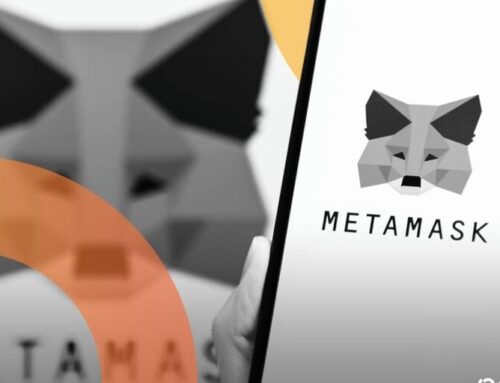Legalize recreational marijuana in Utah? Here’s what residents think
June 22, 2025
- A new Deseret News/Hinckley Institute of Politics poll found 53% of Utahns favor legalizing recreational marijuana.
- The survey shows 77% of residents support the state’s medical cannabis program.
- There is no organized effort to legalize marijuana for adult recreational use in Utah.
A majority of Utahns favor legalizing marijuana for recreational use by adults in the state, according to a new poll.
The survey conducted in May for the Deseret News and Hinckley Institute of Politics found 53% — 30% strongly and 23% somewhat — support legalization, while 43% oppose it.
In addition, the poll shows 77% support Utah’s current medicinal marijuana law, which has been in place since 2018.
HarrisX conducted the online poll of 805 registered Utah voters May 16-21. It has a margin of error of plus or minus 3.5 percentage points.

Utahns’ opinions of recreational marijuana have shifted the past few years. A 2016 UtahPolicy.com poll conducted by Dan Jones & Associates showed only 22% favored legalizing marijuana for recreational use, while 77% opposed making it legal.
An April 2023 Deseret News/Hinckley Institute poll found 40% believe marijuana should be legal for both recreational and medical use, while 51% say it should be medical only. The survey also showed nearly 4 in 10 Utahns were concerned medical cannabis could lead to legal recreational use, while about 6 in 10 did not share that concern.
Cannabis use in Utah
There’s currently no campaign to legalize marijuana for recreational use, and Utah legislative leaders say they would oppose such an effort.
In 2014, the Utah Legislature passed what’s known as Charlee’s law allowing the use of cannabidiol, or CBD, to treat epileptic seizures.
Four years later, voters narrowly approved a ballot initiative extending the use of cannabis for other health conditions amid opposition from the Utah Medical Association, Salt Lake Chamber, Utah Episcopal Diocese, The Church of Jesus Christ of Latter-day Saints and law enforcement. State lawmakers rewrote the law and passed a negotiated bill soon after the public vote.
As of May, Utah had 15 medical cannabis pharmacies statewide, including several that make home deliveries. Cumulative sales since the first pharmacy opened in 2020 are approaching $600 million, according to the Utah Department of Health and Humans Services’ Center for Medical Cannabis.
Just over 101,200 residents have active medical cannabis cards, the vast majority issued to treat persistent pain, with PTSD and cancer a distant second and third, respectively.

Utah Senate President Stuart Adams expressed opposition to Utah expanding beyond medicinal use.
“Utah already has a responsible, well-balanced and effective program that ensures individuals with chronic pain or serious illnesses have access while maintaining strong safeguards to prevent misuse. States that have expanded legalization beyond medical use have seen serious social consequences, including increased homelessness and criminal activity. I oppose further expansion because our focus should remain on what truly benefits our state and the well-being of all Utahns,” the Layton Republican said in a statement to the Deseret News.
Utah House Speaker Mike Schultz, R-Hooper, also opposes recreational marijuana.
“Our current approach ensures Utahns have access to relief while maintaining important safeguards for public health and safety. I remain firmly opposed to legalizing recreational marijuana. It’s encouraging to see that a strong majority of Utahns – 77% – agree that our focus should remain on providing benefit to those who need it most,” he said in a statement to the Deseret News.
Comparing polls
While the Deseret News/Hinckley Institute poll showing a majority of Utahns favor legalized recreational marijuana use might be surprising, it aligns with another recent survey.
The results mirror a survey Noble Predictive Insights did for the medical marijuana advocacy group Keep Utah Medical in March. That poll found 52% of Utahns would support a ballot initiative legalizing recreational cannabis in the state, while 38% would not.
Alex Iorg, co-founder of the medical cannabis company WholesomeCo as well as co-founder of Keep Utah Medical, commissioned that survey to see where Utahns stood on the recreational issue.
“I guess we’re not surprised by those results. That’s what we both have found,“ he said of the Noble and Deseret News/Hinckley Institute polls. ”But we’re seeing this incremental increase of support and I think it’s part of this challenge to get medical access. Our hope is that we can improve access to medical cannabis so that we can avoid a recreational ballot initiative.”
A survey Noble did for the group last October found 50% of Utahns say cannabis should be legal for adults for therapeutic, medical and recreational purposes.
Iorg said there’s a “whole herd” of issues that come with recreational marijuana. Medical programs and patients in other states are often “vilified,” he said, causing people to call for recreational ballot initiatives.
In Utah, “that’s a long way off from being successful even at 53%. What we prefer is having a medical program that’s supported and focused on medical.”
Noble offered this analysis of its poll results:
“YES wins the left and the middle and divides the right. In a red state like Utah, that’s enough to get to a solid — though not overwhelming — margin of victory.
“Over the last decade, major political victories came from a populist-traditionalist coalition: The GOP’s wings would coalesce, form a majority together, and govern. If legalization were to win, the coalition would be built from left to right — a progressive minority joining with the center and Republican moderates. This is possible — but it requires careful execution.”
Currently, 24 states, two U.S. territories and Washington, D.C., legalized marijuana for adult recreational use, according to the National Conference of State Legislatures. Thirty-nine states allow the medical use of cannabis.
Who in Utah favors legalization and who doesn’t
The Deseret News/Hinckley Institute poll shows much stronger support for legalization among self-identified Democrats and independents than among self-identified Republicans. Nearly three-fourths of Democrats and nearly two-thirds of independents expressed support compared to 43% of Republicans.
Broken down by political ideology, 86% of liberals favored legalization, followed by 59% of moderates and 38% of conservatives, according to the poll.
Among age groups, 18- to 34-year-olds, showed the highest support at 65%, while those over 65 showed the least at 36%.
Support for recreational marijuana legalization exceeds 50% in all four of the Utah congressional districts. It approached 60% in the state’s most populous counties, except for Davis and Utah counties at 45% and 43%, respectively.
Self-identified members of The Church of Jesus Christ of Latter-day Saints in the poll were decidedly against legalization, with 31% in favor and 66% opposed. Among all self-identified Christians, 43% favor legalization, while 53% oppose it.
Men showed stronger support than women, 56% to 50%.
Strong support for medical marijuana
Utahns, regardless of political persuasion, overwhelmingly support the state’s medical marijuana law — 73% of self-identified Republicans and 80% of self-identified Democrats. Independents came in at 81%, according to the Deseret News/Hinckley Institute poll.
The survey also found 69% support for the medical marijuana law among Latter-day Saints and 73% among all Christians.
“It’s no longer unacceptable to try cannabis for medical purposes. A lot of people know someone that has benefitted from it directly. There’s a lot of exposure to the benefits,” Iorg said.
Medical cannabis works and saves lives, he said, adding it’s less harmful than prescription opioids. It doesn’t solve all the world’s problems, he said, but it does help a lot of people, especially those looking for relief.
People over 65 showed stronger support for medical marijuana than younger people, but all age groups were above 70%. Support across Utah’s congressional districts and most populous counties was also high, the poll shows.
Baby boomers are the largest users of cannabis, Iorg said.“Now, health and wellness is their No. 1 priority and cannabis has shown to be a great tool, especially for pain and sleep.”
Search
RECENT PRESS RELEASES
Related Post




View Comments